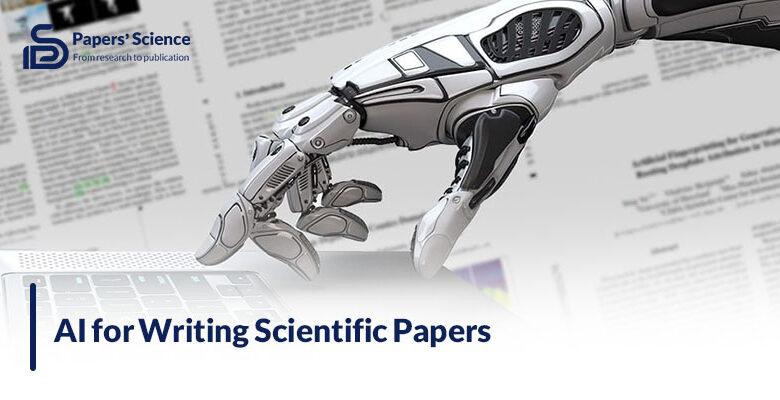Can We Use AI for Writing Scientific Papers?

Modern Artificial Intelligence (AI) has changed how we work, learn, research, and even write scientific papers. This essay explores the exciting world of utilizing AI to write scientific articles and if it’s worth adopting.
To bridge the gap between conventional and AI-powered writing, we shall study AI aid options. University and college students who are apprehensive about using this trend for homework and thesis projects would benefit from this talk.
This investigation will help you comprehend the pros and cons of employing AI in scientific publications and finally get the result that “Can we use AI for writing scientific papers?”
Start the subject.
AI Research Paper Writing: Good or Bad?
Artificial intelligence influences every part of our lives and is increasing quickly. Therefore, we need to learn more about technology to survive and utilize it effectively in our everyday lives. Many believe that using AI for writing is immoral and that writing should be original.
But let’s take a close look at this matter:
The efficiency of artificial intelligence pivots on the quality of the data of our scientific paper.
AI writing tools are vulnerable to bias and copyrights, which makes it essential to involve humans when employing them for our writing tasks.
At first, we mention the drawbacks and concerns of AI-powered academic writing.

What are the drawbacks of using AI for writing scientific papers?
AI’s role in scientific paper production can be divided into two sides: beneficial and detrimental.
First, let’s take a look at the concern about artificial intelligence for scientific content creation:
· Concerns about being Biased
AI can carry over biases from its training data, causing accuracy issues, which is a concern in scientific writing, where fairness matters as it does in scientific papers and articles.
· Don’t expect creativity.
AI tools such as ChatGPT are limited in their ability to be creative or add a novel insight to the paper. They normally generate factually correct texts, but they lack the originality and critical thinking that human researchers bring to their scientific work.
· Insufficient understanding of the topic
When ideas are unique, and there is nothing to create from, artificial intelligence used to generate scientific facts may misinterpret or oversimplify them.
Artificial intelligence may deliver shallow content because it struggles to understand scientific research or study needs.
· Missing the critical thinking
Relying only on AI for writing scientific papers would reduce critical thinking in your article, which is necessary for producing an article that is acceptable in the scientific world.
Now let’s see how we can use AI to avoid all these drawbacks and write a scientific and unbiased article that has depth and includes our critical thinking.
Read More: Types of plagiarism in research methodology
How to use AI in a scientific article?
To avoid possible mistakes and keep your article more human-based, you can follow these steps to apply AI effectively in your research and writing process:
1. Right AI tool for the purpose
Before using any tools, try to search and select a reputable AI tool that lines up with your needs. Ensure it contains features that are useful for scientific writing. For example, generating references or citation tools.
2. Data preparation
Since this is a scientific essay, you must arrange your research data, important points, and paper outline so AI can comprehend your needs and propose the most relevant things. You must define the paper type, style, research technique, and prerequisites.
3. Use AI for drafting.
You can ask and operate the AI to generate an initial draft of your scientific paper.
4. Review & edit
You can only use AI technology for research papers. Use it after you have done your article. When you are finished writing the paper, you can give it to the AI and make sure it aligns with your research goals, adheres to academic standards, and is free from various types of errors.
5. Add the Cite References
If the artificial intelligence doesn’t handle references, you have to manually add citations since it is one of the most essential parts of each article.
These are the ways to enhance research papers with AI and avoid possible disadvantages while getting help from this popular tool.
Conclusion
As mentioned above, the combination of AI in scientific paper writing offers both advantages and challenges. While AI can assist with content generation or correcting our writing, it lacks creativity.
Therefore, the use of AI in writing scientific papers should be with careful consideration and a logical balance. As technology continues to evolve, we must know how to operate it correctly.

What are your thoughts on using AI for writing scientific papers? If there is anything we didn’t mention, please add them in the box below.



